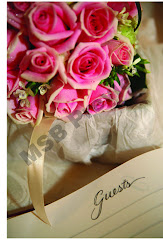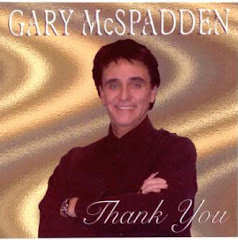Katherine Smith writes about her five rules of publicity for authors on her blog, Writer’s Write. Every author needs to institute a broad range of strategies in their quest for publishing success and we all need to be exposed to as many people’s ideas as possible. Use the tips for what they are; the kinds of things that made others publishing successful.
Being your own publicist is at once hard and easy. If you know the what and how of the task, doing those things are a matter of faithful execution. Teresa Evenson at TEAM Marketing runs a clinic on the subject and attending should be a must for every serious author. I caught her clinic at Estes Park and was amazed at her ability to boil the whole thing down to manageable pieces.
My first exposure to her author self-publicist concept was when she used to do her author tour each year at CBA EXPO. Teresa cajoled a room full of press into a conference suite and ran authors through at twenty minute intervals, giving each huge exposure at such a pace the press had no choice but to pay attention, or miss an opportunity.
It was very affordable, easy to achieve and had long term benefits for everyone, not the least of which was the literary press corps.
http://www.writerswrite.com/journal/oct02/ksmith.htm
The Five Golden Rules Of Publicity For Authors
By Katherine "Kat" Smith
The hard work, you think, is over. You've labored into many late nights writing your book, struggled to literally make sure every "i" is dotted and every "t" crossed. Your book -- your baby -- is all grown up now; completed and ready to set the world on fire.
Then, the cold, hard truth slaps you in the face like a winter chill. Like the proverbial tree falling in the woods with no one around, your book isn't going to make a sound -- or even be known about by anyone -- unless you get the word out. You could hire a publicist, but the often high-costs can be prohibitive, and perhaps most of your "book money" went to editing, design, layout and printing.
What to do?
Relax, set your ego aside, and set up a plan and course of action. Book promotion isn't rocket science; but it does involve a lot of hard work, persistence and some added touches of creativity. Here are some basic yet invaluable pointers for the bold author who has decided to go it alone in the wild world of book promotion.
Change positions with the media
The essence of book promotion is the utilization of the media to get the word out to the public about your book. Sure, producers, editors and journalists can be a gruff bunch, but the reality is they are literally swamped with books and press releases every day.
What you need to do is put yourself in the shoes of the media. If you were a feature editor at a paper or a producer of a talk show, what would interest you? Too often, amateur publicists simply believe that getting a book or press release into the right person's hands will do the trick. WRONG. You've got to think of an angle, hook, slant -- whatever you want to call it -- that will interest the right people.
Listen to talk radio. Watch TV talk shows. Read the lifestyle and feature sections of newspapers. Read magazines. See what makes it; then create a press release that will make it happen for you.
Remember: No one ever interviews a book
Getting on radio and TV talk shows is exciting, fun and can really jumpstart book sales. But if you think your book will get you on the air by itself, you're probably wrong. No one interviews a book ... they interview PEOPLE. Of course, the topic your book may be gets the attention of producers, but they need and want people who can be informative, entertaining and articulate. People make a show ... not books.
When you're promoting a book, you're also promoting yourself. Remember this, practice this, and go for it!
Invest in useful resources
No self-promoting author can achieve success without a few essential resources. You need to know who to contact and how to contact them. Media directories are plentiful, and some are actually affordable. Shop around and get one. One of the most popular is the series of Bacon's media directories, but there are many available.
But what about non-media publicity resources? Book signings and speaking engagements are excellent ways to get books moving and create word-of-mouth awareness. A book such as The Book Seller's List -- a directory of book stores and other outlets -- puts the information right at your fingertips. Other books cover virtually every aspect of book promotion -- from direct mail and marketing to media coaching and radio interviewing skills.
Practice relentlessness
The reality of book publicity is ... you have to get used to being a salesperson. Make no mistake about it; you are selling something when you try to get the media interested in you or your book. Practice the art of persuasion while always keeping in mind what the media wants.
Any publicist will tell you that being relentless is paramount in book promotion. You have to walk the fine line between persistence and annoyance, being careful to not become "pushy," but persuasive. Don't stop with one phone call, email, fax or letter. Follow everything up, and then do it again and again.
Know the game
Think of book promotion as a very simple marketing game: If you give the media what they want -- good stories, solid information, controversial or provocative topics - they'll give you what you want -- print coverage or air time to get the word out about your book.
So many authors complain that they "sent 100 review copies out with fancy press kits and no responses!" Perhaps the books and press kits didn't give the recipients what they need and want to do their jobs? Are you simply shoving a book in their face, or persuading them to take a look at the book because of a compelling angle or tie-in to a topic many people are interested in?
Anyone can send out books or press releases about a book, but the successful self-promoters lure the media in by enticing them with information that can help them do their job.
Time To Get Organized
4 days ago







